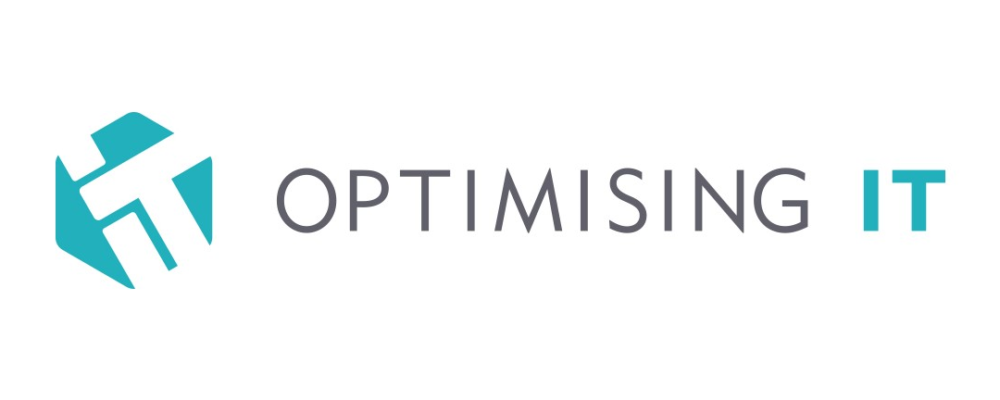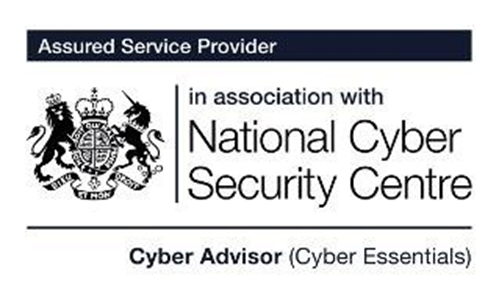
IT services can help mould and shape your business by providing tools, access, and convenience, increasing productivity, efficiency, and profitability. Understanding what IT support managed services offer can help you know your business’s needs.
IT services are integral to a company’s day-to-day tasks in today’s modern office environment. Historically, there have been many accomplishments of IT services that have helped enterprises flourish and stay ahead of the curve.
What Are IT Services?
Information technology (IT) services grant businesses access to technical tools and information used in operational processes and daily tasks. These tools extend their use across multiple occupational fields that utilise databases, online storage, and network security.
An IT services provider can offer many different types of IT services. For this article, we’ll be looking at IT support managed services and remote IT services.
IT Support Managed Services
IT support managed services are those provided by a third-party IT company. The IT services provider will take responsibility for an agreed-upon portion of a business’s IT infrastructure in exchange for payment.
Some common examples of IT support managed services include:
- Network and Infrastructure Support
- Network Administration
- Cloud Account Management
- Data Backup & Recovery
- Remote IT Support
- IT Help Desk Support
- Project Management and Delivery
Even if your company already has an IT team, enlisting the help of managed IT services can amplify the strength of your IT department. Co-managed IT can help to fill skill gaps with additional team members possessing a wide range of skill sets.
Budgeting is made easier with substantial cost savings by hiring a managed IT services provider. It eliminates the need to hire additional personnel, targeted training, and purchase new technology.
Remote IT Services
Remote IT services can mitigate IT issues from a remote location using a set of procedures. These services include:
- Server software updates
- Desktop and server access
- File management
- Diagnostic program execution
- Ongoing maintenance
Remote IT services are highly cost-effective for those companies who require IT support but don’t have the resources to hire in-house IT staff. It removes the need for training your employees and getting them certified. Get the help you need when you need it rather than waiting around.
Significant Examples of IT Services and Their Impact
IT services are incredibly beneficial to most businesses. The tools they provide can help businesses to run smoothly and efficiently. Employees can interact with the technology, giving them a boost to their job performance and productivity.
The most significant types of IT services that have helped and continue to help businesses thrive are as follows:
1. Remote Support
Remote IT services can access your devices and provide technical support to businesses from remote locations. Almost all devices that have access to the internet can be accessed remotely. Barring any physical hardware issues, remote support agents can troubleshoot and repair IT issues over the internet.
In-person IT was strongly prohibited during the COVID-19 pandemic. Social distancing protocols around the world prevented on-site IT support. Remote support specialists provide on-demand assistance no matter where the issues are present.
Remote support has dramatically impacted the workforce by resolving IT issues faster with reduced response times. Hiring a remote IT support service has allowed many companies to save money while maintaining a smooth workflow operation.
2. Cloud Services
The cloud makes information accessible at home or in the office. It is an internet-connected platform that allows businesses to store and access data anywhere with an internet connection.
This service provides employees with increased flexibility and the option for remote collaboration. It can also help significantly reduce a company’s IT costs.
There are multiple types of cloud services. The most common types are software as a service (SaaS), platform as a service (PaaS), and infrastructure as a service (IaaS).
Infrastructure as a service is at the lowest end of cloud computing. IaaS offers turnkey infrastructure in a virtualized environment. However, the end-user is responsible for maintenance and installation.
Platform as a service is atop the IaaS layer. You get an operating system or development platform—like Microsoft Azure—on top of virtualized infrastructure.
Software as a service is the topmost layer of cloud computing. End-users receive on-demand applications that SaaS providers offer. Gmail is an excellent example of SaaS.
Cloud services offer businesses scalability, affordability, and increased productivity. They provide backup and disaster recovery, which protects all of your data should you lose your device.
3. Software Development
Customers experience a company differently. You want your customers to provide positive feedback and engagement. To do this will require proper software development.
Software development can help a business reach new heights of integration. Companies require online platforms and mobile applications to extend customer reach. IT services often include software development processes businesses can use to create custom applications that fulfil specific company needs.
A SaaS development company can save your business time and money. Not only that but creating a well-built platform can result in a significant revenue spike. IT services can provide your company with the means to develop personalised software. This ensures the program’s viability through continuous testing, development, and maintenance.
4. Network Security
Cyberattacks target almost half of all private businesses. Preventing these malicious events makes network security a crucial part of your company’s IT infrastructure. It becomes even more critical when working over the internet.
A stable and efficient network security system is crucial to protecting client data. A solid network security service can help shield a business’s network from unauthorised intrusion. IT services that offer cybersecurity can create and issue authorization to employees. Good network security will reduce the risk of falling victim to data theft, malware attacks, and harmful spyware.
Sadly, no network is immune to compromise. High levels of internet traffic can cause a network to become unstable and vulnerable. Reliable network security provides your company with multiple levels of network protection.
5. Monitoring Internet-Enabled Devices
IT services can monitor internet-enabled devices in real-time, including a company’s network, internet traffic, and computers. Monitoring allows IT staff to track business information access, required repairs in technology, and whether a computer needs software updates or modifications.
Network monitoring reports can help identify patterns and trends in system performance. The recorded information can help your company establish performance baselines. Thus, network monitoring services also eliminate the need for a physical system administrator.
Businesses looking to optimise network performance and availability, stay informed, track system trends, and take a proactive approach will appreciate network monitoring service providers. Like most every other IT service, it can help save time and money addressing network problems.
6. Voice over Internet Protocol (VoIP)
Traditional telephone communications’ spiritual successor, Voice over Internet Protocol (VoIP), brings substantially increased flexibility and stability to telephone calls. It allows team members to communicate efficiently via calls or text messages over an internet connection.
VoIP can handle basic telephone calls, and businesses can also use it for video conferencing. All that is required is access to the internet. This makes VoIP an excellent communication tool for businesses. VoIP also supports real-time texting (RTT), significantly boosting functionality over traditional communications.
Communications-intensive companies can see exceptional cost reductions when employing VoIP technology. This is primarily because of internal long-distance communication. Businesses in different locations will not “run up” the telephone bill making such calls as most VoIP services require paid subscriptions.
Organisations of all types can feel the significance of VoIP. By adopting VoIP, a company will sit at the forefront of communications technology for the foreseeable future.
7. Email Services
Electronic mail (email) has vastly improved the rate at which individuals communicate. Businesses rely heavily on email for various purposes, including important messages to company-wide updates and newsletters. An email has become an essential part of business relationship maintenance.
An email still has several advantages in modern times. Communication is almost instantaneous when using email. It’s available anywhere the internet can be accessed and doesn’t require shipping or mailing costs like traditional mail, allowing you to accomplish more in less time.
A company’s IT team may oversee the businesses’ email accounts and make IT service provider recommendations that suit an organisation’s communication needs. IT email services can also improve sales and marketing by keeping communication open between customers and sales leads.
8. Information Collection and Reporting
IT services can provide reports on information about your organisation via data collection. This information can help a company understand the productivity, efficiency, or even vulnerability of its current processes.
The information that IT services provide covers many topics about a company’s IT infrastructure. Organisations that want to streamline their financial and project reporting will benefit from IT services. Information reporting services can arrange information in such a way as to help company leaders better understand their business.
In addition, information collecting and reporting services can help to set standards for risk assessment. Companies needing an audit can utilise these IT services to discover vulnerabilities and flaws in their IT infrastructure.
9. Information Backup Solutions
Having a backup solution is crucial to any business. Information backup services protect against data loss by storing the information on external hardware or online platforms. There are different types of information backup services, such as full, differential, and incremental data.
Full data backups are the standard for small or new companies that do not yet have the capital to invest in a high-quality data backup solution. A complete data backup creates at least one additional copy of all an organisation’s data files and stores them in a single backup operation.
A differential backup solution performs a one-time initial backup of all requested files. Afterward, it creates only copies of the files which have changed since the last backup. This backup solution is a time saver but is more susceptible to file loss due to data corruption. Cloud storage is a typical differential backup solution.
Incremental data backups only copy data that has recently made updates or changes. This backup solution is a highly efficient data restoration strategy and takes little time to complete, so it’s well worth doing. You don’t want to make the mistake of assuming you won’t need one. Its first backup will go for a full restore and then only the updated data files in a similar manner to an incremental backup.
Data backup services continue to gain much popularity. This popularity results from an ever-increasing presence of cyber threats making information backup solutions a business necessity.
The Digital Age
The IT services industry continues to explode as businesses look for methods to get ahead of the competition. Companies of all sizes are prioritising technological investments as they seek growth and expansion. Instead of maintaining an in-house IT department, organisations can now focus more on their core responsibilities.
There are several advantages to hiring IT support managed services. A few of these advantages include:
- Cost-effectiveness and the bottom line. It’s no secret that IT services allow businesses to cut costs and save money. By shifting to a managed IT service from an in-house staff, a company can offload the relatively high fixed cost of the latter.
- Strategic focus on essential goals. A company will no longer have to divert resources and effort to an IT department. Instead, IT efforts are handled by a third-party, allowing an organisation to focus on its core values.
- Efficiency and standards. Enhance productivity with the help of a well-established managed IT service. An IT service can help an organisation construct a customised solution that leads to success. IT services are held accountable for their level of work through Service Level Agreements (SLAs). This means they must use industry best practices to guarantee that defined processes and workflows are in place.
IT Services Continue To Improve
The future continues to look promising as outsourcing has never been easier. The tools, software, and services continue to evolve, providing businesses with up-to-date technologies. As a result, tech-savvy businesses continue to reap the benefits, especially with an IT services provider they can truly trust.













